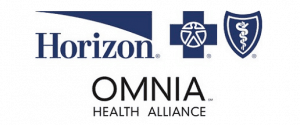Are breast pumps covered by Horizon Blue Cross Blue Shield?
March 11, 2020Time for a Coverage Checkup?
April 2, 2020
Horizon OMNIA Plans
Blog by: Michael Sheeran, CFP
Horizon Blue Cross released the Omnia plan designs on January 1, 2016. The new plan release created a lot of press, both good and bad. I won’t go over the criticisms of the plan, but I will cover what policyholders and business owners need to know before enrolling in one of the Horizon BCBS Omnia plans.
*The bottom line is that these are great plans to save money on premiums, and out-of-pocket costs at your providers.
Horizon BCBS Omnia Explained
Horizon Blue Cross released these plans with their major goal of providing lower priced plans for consumers while encouraging quality of care from their participating providers.
They hand selected the Omnia Tier 1 providers based on metrics such as quality of care, overall cost, and other factors they felt were important. Some of the goals that were established in creating the Omnia Health Alliance were; lowering re-admissions to the hospital, infections and other costly issues that can arise through a normal course of care.
Omnia Network
The Horizon Omnia network and plans continue to create a lot of confusion in NJ even after being released four years ago.
If you are enrolled in an Omnia policy, the hospitals and providers are IDENTICAL to the Horizon Managed care network. So if you have HMO, Advantage, POS or EPO, your list of participating providers should be exactly the same as someone with Omnia.
Omnia plans use a Tiered network structure, and all “Omnia” providers fall into Tier 1, with all other participating providers falling into Tier 2. Each Tier will have different benefits with Tier 1 being lower out of pocket to consumers than Tier 2.
List of Omnia Hospitals as of 1/01/2018
Omnia Deductible and Max Out of Pocket
Omnia uses a tiered network structure, so if your provider is designated Tier 1, you will have a lower deductible or no deductible at all when compared to Tier 2.
As you use the plan, Horizon will keep track of your claims and apply Tier 1 claims towards the Tier 1 deductible, and likewise apply Tier 2 claims towards the Tier 2 deductible.
One thing to note is that any Tier 1 claims will also count towards your Tier 2 deductible and maximum out of pocket. The reverse is not true though, and Tier 2 claims do not count towards Tier 1. There are some exceptions to this that I will review below.
Claim 1 Example:
You are enrolled in Omnia Bronze high deductible plan that has a $3,000 deductible for both Tier 1 and Tier 2 claims.
If you visit a Tier 1 hospital and the charge is $1,000, you will have met $1,000 towards both the Tier 1 and Tier 2 deductibles.
Claim 2 Example:
You have the same $1,000 charge, but this time at a Tier 2 hospital.
In this case, you have only met $1,000 towards your Tier 2 deductible. Nothing has been applied towards Tier 1.
Exceptions to deductible carryover:
Depending on the order of events, you may have situations where you only see Tier 2 providers before ever seeing a provider in the Tier 1 network. If you meet the Tier 2 deductible first, Horizon will then consider any applicable Tier 1 deductible to have also been met.
It will be the same for the maximum out of pocket. If you are unfortunate enough to reach your Tier 2 maximum out of pocket first, Horizon will consider the Tier 1 max to also have been met. At that point, you will not pay for any more approved claims for the rest of the calendar year.
Small Group Omnia Plan Options
- Horizon Omnia Platinum
- Horizon Omnia Gold
- Horizon Omnia Gold with BlueCard
- Horizon Omnia Silver HSA
- Horizon Omnia Silver
- Horizon Omnia Bronze
Omnia Frequently Asked Questions – FAQ
- Do I need to select a primary care doctor?
- No, although you will pay the lower copay if you do.
- Do I need referrals?
- No, they are all no referral plans
- Can I go out of network?
- No, this is in network only unless it is an emergency. While traveling or when you feel it is appropriate, you can also use the teledoc service with Horizon. This can save you a lot of time and money. Horizon CareOnline
- How are prescriptions covered?
- Prescriptions are all Tier 1
- How is urgent care covered?
- From what I have seen, all in-network urgent care centers are Tier 1.
- Do I get BlueCard nationwide access?
- Small group plans offer the Gold plan with BlueCard, and midsize group plans also offer BlueCard. The individual health plans do not have this as an option.
- My doctor says they don’t take Omnia, now what?
- Double check this. Many people think that if the provider is not Tier 1, they aren’t part of the network. This is not true. Â Always double check with the website and ask for clarification. Get help from your broker with this.
- How is it fair that Horizon can pick and choose the Tier 1 hospitals?
- This is one criticism of the plans, and we will see what happens.
- I’m interested in learning more, what do I need to do?
- You can reach out to me anytime and I will review the plans and prices with you.
- Will I save any money by using an Omnia plan?
- Typically yes. If you use mostly Tier 2 providers though, it might be close. You should run the numbers to take a guess at your estimated out of pocket with both options.
- Do I need to change my doctor?
- No. The Omnia plans use the same network as all of their other plans. If you prefer to stay in Tier 1, you may want to consider changing to a Tier 1 provider. You do not need to change your physician though.
- What is the best Omnia Plan?
- Of all the plans I’ve reviewed, I like the HSA option and is what I personally have owned. If you run the numbers, most people will save a considerable amount of money by choosing the Bronze level plans when compared to the “better” options. This takes into consideration people with low, middle and catastrophic claims.
- Who should not purchase Omnia?
- If you primarily use Tier 2 providers, it will be worth investigating some of the other plans. Also, if you need BlueCard access, you should investigate other BlueCard options and compare them to the Omnia Gold with BlueCard. (This assumes you are in the small group market.)
For more information or to get a quote please contact Glenn Insurance at 888-OK-Glenn or by clicking here.

 Get a Quote
Get a Quote